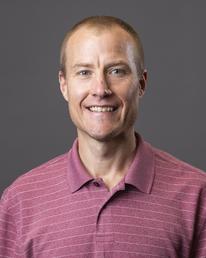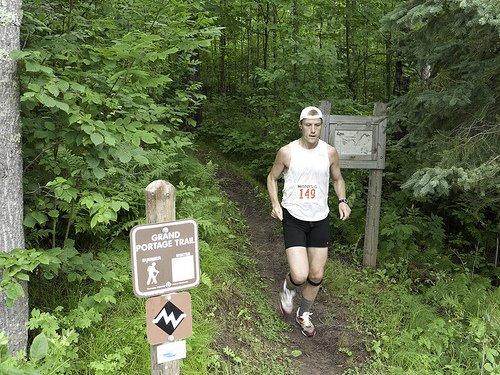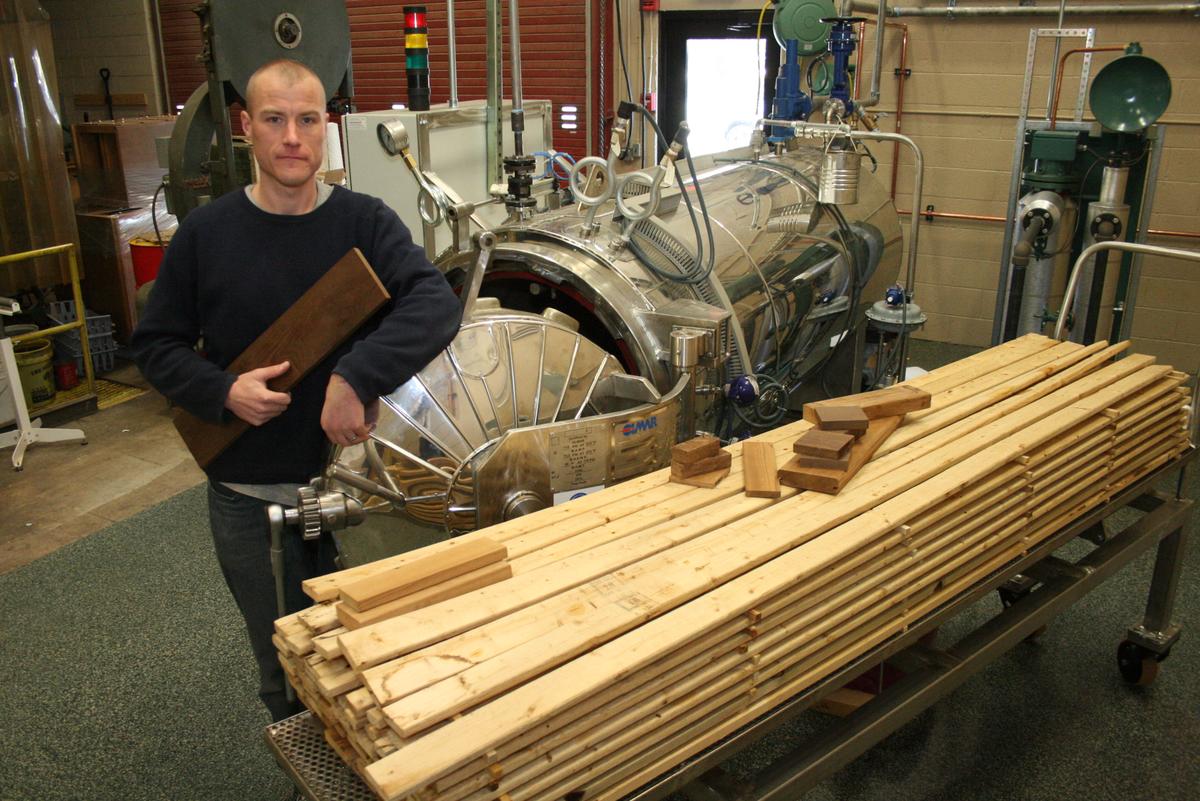When Matt Aro does something, he goes all out.
Like many people, he loves to run. Long-distance run. Ultra-long-distance run. We’re talkin’ 135-miles-in-Death-Valley-California run.
And, like many people, Aro likes music. Specifically, the Goo Goo Dolls. So naturally he’s been to a few of their concerts. Twenty one concerts, exactly.
Let’s just say that when Matt Aro finds something he enjoys, he sticks with it. And it’s the same with his work at NRRI as Forest Products Research Program Manager. He started his career at NRRI in 2003, his first real job out of college. This year marks his 20th year.
“I enjoy the variety of my work. Rarely are two days ever the same, which is important to me,” said Aro. “I like trying to find solutions that people actually want. But that’s a lot harder than you’d think.”

Aro graduated from the University Wisconsin-Superior in 2001 with a bachelor’s degree in Broad Field Science. He had planned to be a high school science teacher but later changed his mind. Still, the degree gave him the ability to talk about science and technology in ways that people can understand. Once he got rolling with NRRI research he enrolled in UMD management courses that earned him two master’s degrees.
“I came to NRRI by a stroke of luck,” said Aro. “I learned through my roommate at the time that NRRI was looking for a new lab tech. I applied and was hired.”
For one current project, Aro is partnering with Washington State University on a project to commercialize a unique strand-based composite building panel using thermally modified, low-value timber. Without markets, these small diameter trees are left unharvested. The thermal modification process – basically cooking the wood in a low-oxygen kiln – raises the marketability of the wood by making it moisture resistant and more durable for more applications.
“We are hoping to soon demonstrate this product using small diameter balsam fir from Minnesota,” he said. “This species is a low-value, underutilized feedstock that is considered a hazardous fuel that contributes to intense wildfires.”
Collaborative Effort
NRRI’s integrated research approach serves Aro well in his efforts to improve the marketability of low-value wood species. He’s working with scientists in the Water Group to evaluate the environmental impacts of novel stormwater filtration systems, led by Dave Saftner at UMD Civil Engineering. Scientists in NRRI's Chemistry and Materials Program helped Aro study low-cost chemical treatments to improve weathering performance of thermally modified wood, and to analyze leachates from the wood.
Aro’s many projects pull in expertise throughout NRRI and the University of Minnesota.
“We will soon be starting a project that will tap into the expertise of Dr. Omar Espinoza, on the Twin Cities campus, to conduct the first-ever technoeconomic assessment of our patent pending thermally modified strand-based composite building panel,” he said.
Central Support
NRRI research is largely funded through grants and contracts, and researchers depend heavily on the help of Grants Professional Megan Gorder. Aro is grateful for her administrative expertise to keep proposals on track.
“Last fall I submitted a complex USDA proposal and Megan did an incredible job of keeping me on track, making sure I knew what forms and documents needed to be filled out, assisting with budget development, and interacting with the U’s Sponsored Projects Administration. Megan is indispensable and an amazing talent.”

Off Hours
Weekends find Aro happily logging 25 – 30 miles or more on the Superior Hiking Trail or the North Country National Scenic Trail near his cabin in Iron River, Wisc. Yet, he still hasn’t beaten his record run in 2010, the Badwater 135-mile Ultramarathon in California.
“It’s advertised as ‘The World’s Toughest Footrace’,” said Aro. “I’m sure there are races that are more difficult, but it was certainly one of the most demanding things I’ve ever done.”
